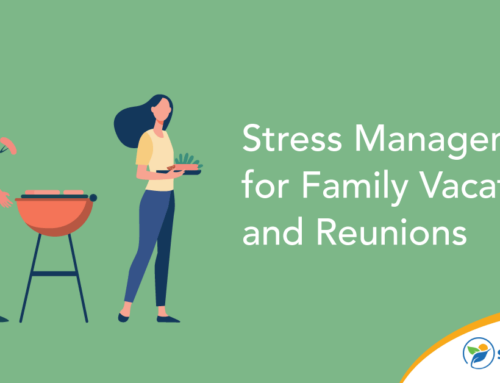If the thought of sharing a close bond with others leaves you feeling anxious, you might be struggling with fear of intimacy. Also known as intimacy avoidance, this fear may lead you to sabotage relationships or avoid intimate situations altogether. But overcoming intimacy fears is possible with the right techniques.
Rising above your fear of intimacy can open the door to a lifetime of fulfilling relationships. Here’s what you should know to get started.
Understanding the Roots of Intimacy Fears
Determining where your intimacy fears begin is key to eliminating them at their source. Numerous causes are known to contribute to a person’s fear of intimacy, including:
- A history of verbal, sexual or physical abuse
- Parental neglect
- Fear of rejection or abandonment
- Fear of being controlled
- Fear of loss
- Anxiety disorders
Avoidant personality disorder, or AVPD, is another potential cause of intimacy fears. Affecting an estimated 2.5% of the U.S. population, AVPD is characterized by low self-esteem and a fear of being judged. Those with AVPD tend to stay away from social situations in an attempt to avoid anxiety and rejection and may develop intimacy fears as a result.
The factors that cause fear of intimacy frequently stem from past experiences, often as far back as childhood. And for many, this fear affects more than just romantic relationships. It can involve more than one of the following forms of intimacy in varying degrees:
- Emotional. You feel uncomfortable revealing your feelings to others.
- Intellectual. It’s difficult for you to share your thoughts and ideas.
- Experiential. You dislike it when others partake in experiences with you.
- Spiritual. You’re fearful of sharing your beliefs with others.
- Sexual. It’s a challenge for you to share yourself sexually.
It’s important to note that the fear of intimacy is often a subconscious one. Most people who avoid intimacy yearn for the care and closeness that come along with it, even while they’re pushing others away. And while overcoming intimacy fears takes time and dedication, it can help fill a necessary void left by sabotaged relationships.
Exploring Patterns and Triggers in Relationships
Although intimacy fears are instilled through past experiences, it’s your present-day relationships that trigger them. In many cases, the relationship in question is a healthy one.
It’s common for intimacy fears to be exacerbated by positive feelings more than negative ones. Being cared for can stir up long-buried fears, preventing close relationships from developing the intimacy they need to thrive. Unfortunately, a person’s most important relationships can be most affected by intimacy fears.
Your fear of intimacy can manifest itself in many ways, often forming patterns that create a cycle of damage to the relationship. These patterns may include:
- Serial dating. You might have little trouble interacting with others when a relationship begins. As intimacy increases, you begin to sabotage the connection, resulting in a string of short-term flings.
- Trouble expressing needs. You might find it extremely difficult to express your needs to another person. When these unspoken needs go unfulfilled, dissatisfaction arises.
- Self-fulfilling prophecy. Intimacy fears can leave you with a feeling of inadequacy, making it seem like the relationship is doomed. As you push the other person away, you may feel justified, further reaffirming your fears.
- Struggling with physical contact. Intimacy fears can lead you to seek physical contact constantly or avoid it completely, both of which can strain a relationship.
To the other person in the relationship, it may not be clear that these patterns are intimacy fears made manifest. This can mean your struggle to get close to someone actually pushes them away — especially if the relationship is one you value highly. For this reason, taking steps to mitigate your fear is essential to keeping the relationship alive.
Building Trust Through Open Communication
It’s easy to lose trust when you’re blinded by long-held fears. Establishing a mutual understanding of trust can help you feel comfortable opening up to your partner about your past and making your concerns about intimacy known. This may help both of you recognize triggers and take steps to prevent fear-based sabotage.
Communicating needs in partnerships is always important, but especially so when intimacy fears are involved. When building trust in relationships, keeping communication lines open can make it easier to let your partner know you’re feeling fearful. Over time, your partner might also learn to recognize your fear-based behavior.
Additionally, it can help to look at how you communicate with yourself. Is your inner dialogue feeding into your fear of intimacy? If so, try challenging these thoughts and replacing them with positive substitutions.
Gradual Exposure and Desensitization Techniques
It takes time to overcome deeply held fears. And while overcoming intimacy fears is possible, it won’t happen overnight.
Give yourself time to get used to being intimate. For most people, it’s best to start slow. Gradually exposing yourself to intimate situations can keep you from being overwhelmed. This can mean having an intimate conversation that only lasts 30 seconds or engaging in playful touching with the mutual understanding that there are no sexual expectations.
Exposing yourself to intimacy little by little can help desensitize you to the stress of closeness. As time goes by, you might find yourself comfortable in intimate situations that would have once made you anxious.
The good news is that the more time you spend being intimate with trusted loved ones, the easier it gets. Some research suggests that engaging in positive relationships with others is one of the best forms of intimacy fear treatment. These experiences are likely to improve your ability to build intimacy over time.
Overcoming Intimacy Fears With Lasting Solutions
Managing fear of emotional closeness isn’t a challenge you have to take on by yourself. Depending on where you lie on the spectrum of intimacy fears, professional guidance may be the best course of action.
Therapy may help you get to the root of your intimacy fears to overcome them for good. At Sunlight Recovery, we work with each individual to help them identify the best course of action based on their needs, experiences and co-occurring conditions such as anxiety or substance abuse.
If intimacy fears are standing in the way of your fulfilling relationships, don’t hesitate to reach out for help. Our team of professional counselors is here for you. Contact us now to get started.







